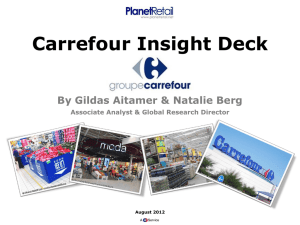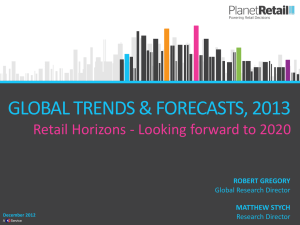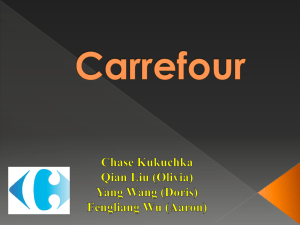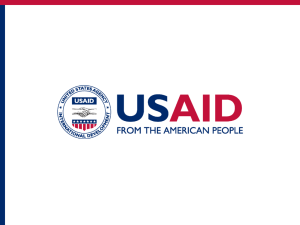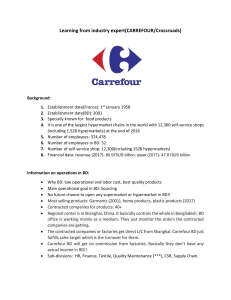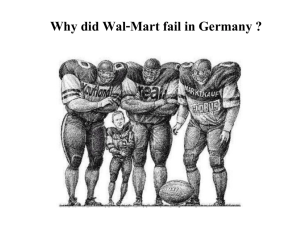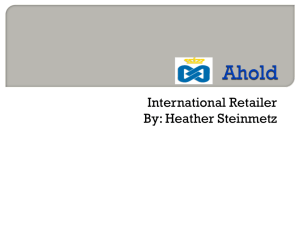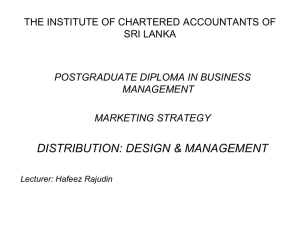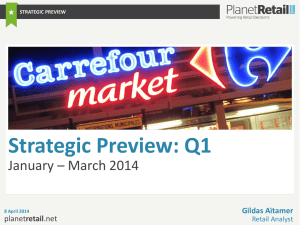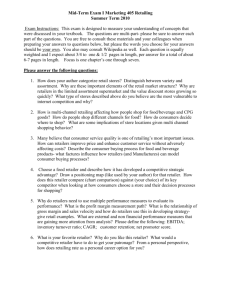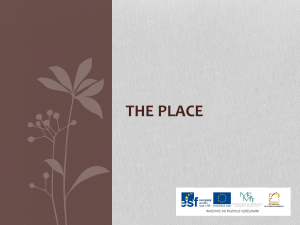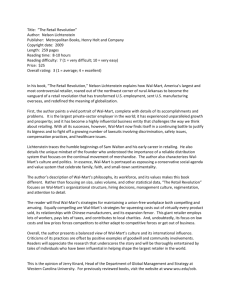Carrefour_S3_F08
advertisement
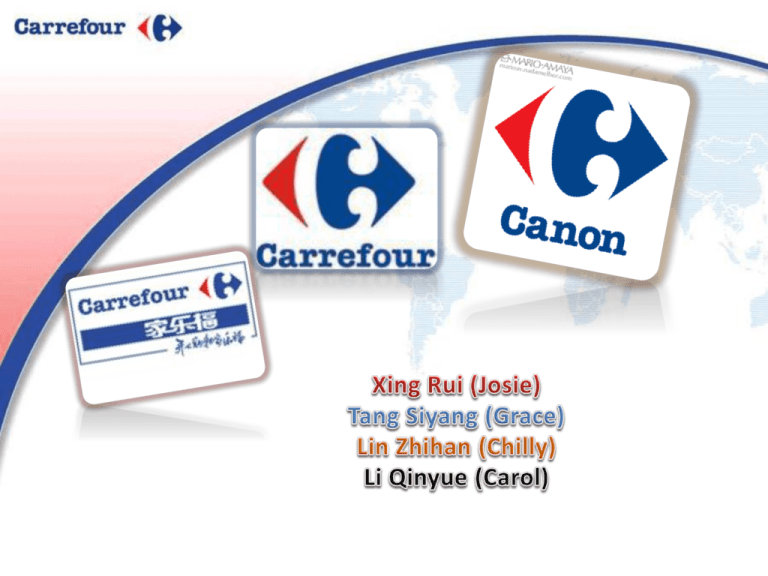
Introduction The Carrefour group: a world leader in distribution An international retailer promoting the growth of local economics History 1959:Carrefour was established. 1960:The first Carrefour store opened and was an immediate success. 1963:Carrefour established its first hypermarket. 1970:The company went public. In the 1970s-80s:International Growth History In the 1990s:Carrefour continued growth In the late 1990s and Beyond: Strategic Acquisitions In 2008: Continuing growth in a challenging environment Industry Analysis The exchange of food and weapon Traders Retail Industry Shops Stores(Specialty shops) Department store Shopping Centers and Malls Global Issue China India Russia Emerging Markets China Until 1990s, foreign retailers began to be allowed in. Largest City Second and third tier cities India Wal-Mart: The Announcement of Openness Metro: Planning to Corporate with Local Government Tesco: A Successful entry Risks Fierce competition with the traditional trade. Business management of Retail Industry in emerging markets. The counterfeit problem. The transportation cost Future Trends Recruiting local people Approaching the market Innovating Company Analysis --Strengths Market leader Brand recognition Focus on competitive prices --Weakness Stagnant sales in France Declining of profitability Losses for on-line business Opportunities Strong growth potential in Asia New stores Agreements with Coop Atlantique Threats Stiff competition from discount retailers in France Increasing labor costs in Europe Poor retailing outlook in the Eurozone Global Expansion Win-win target: both in France, and all subsidiaries Encourage local economy Expanded Steps Examples Conducting Social Audits Local Specialties Labors: wages and hours Sustainability Economic Social Environmental Automated pallet traceability system Good traceability Diversified transportability Unique logistics Utility Use of geographic resources A. Rail Alleviate environmental impact B. River C. Truck load New Departments Retain the original architecture Proper sites to build Traffic jam vs. public safety Urban Rural Recruitment SKILLED people Fair ranking management Men and women Local and expatriate staff Training and motivation Competitors Tesco Main Competitors in Retail Market Metro Wal-Mart Carrefour Wal-Mart Tesco Metro Others Tesco ----Every shopper needs every little help The fourth largest global retailer The first movement among the top The humanistic care The most potential competitor Korean Market Metro Group NO.1 in German Retailer Market Media Markt, Saturn: Electronic Retailers Metro Cash & Carry: No credit account Real (including Extra), Galeria Kaufhof Experiences in self-service wholesale Wal-Mart The largest one in the world’s retail industry In 1990, beating Sears and K-Mart The most significant reason for customers’ shopping there----Low Price Chinese Markets’ competition between two giants The 100th store in China in 2007 Quick Expansion---from metropolis to central and western of China. Local Product Sourcing Flexibility and Creation Short-term Recommendations Experienced Employees Local specialists vs. Expatriate staff Political involvement Political inclination caused to profit crisis (China) Long-term Recommendations Improving company's image Making more effort on global expansion Conclusion On track to attain 2008 objectives Continuing and deepening action plan Carrefour well positioned to continue growing in a challenging environment • • • • Essentially a food retailer Multi-format Increasingly international Solid debt profile
